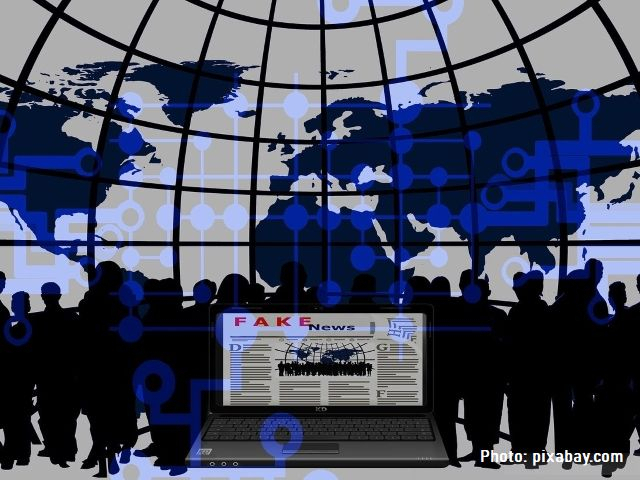Fake news
'Fake news' is a technique for disinformation, and sometimes outright manipulation

Corina Cristea, 03.09.2021, 14:00
Their content has the appearance of news, which the information within is not, but sometimes is partially true. We are talking about fake news, a technique for disinformation, and sometimes outright manipulation. This has become a phenomenon amply studied by the scientific community. They propagate quickly, mainly online, which makes them even more dangerous. This is also because these fake news are very easily believed to be real news by an audience that is not educated about them. We talked about this with communication expert Bogdan Oprea, who publishes on fake news and online disinformation:
“Not educated, meaning that first they have to understand that not any form of news has accurate journalistic content. This is something that the public at large started understanding better in the last few years. Fake news is disinformation. Here we have several concepts, but two of them are most important: intentional and non-intentional disinformation. The English language actually has different concepts for them, disinformation proper, meaning intentional erroneous information, with the intent of misleading someone, and misinformation, which is unintentional, we could even call it journalistic mistakes. We can also talk about malinformation, when you disclose publicly information about someone, accurate information, but which is not meant to be made pubic, something about a person’s personal life, which brings prejudice to that person. Here we can include leaks. We saw the scandals about the work e-mails of Hillary Clinton when she was US Secretary of State, not meant for the public. We also saw the information about French President Macron, all information that can harm a person once it is made public. These are probably the most often used techniques in online disinformation. But we have to understand that, in addition to disinformation, there is also manipulation online, and not only, and the techniques are innumerable.
Communication expert Bogdan Oprea points out that there is a market for fabricating fake news, just as there is a market for fake links, or a market for online signatures. If you want to get signatures, a simple search gets you to companies that sell the signatures you need. What contributes to the success of fabricated news is that they rely a lot on emotional responses, which is exploited by manipulators. The present information ecosystem was not created for disinformation, but social networks allow the monetization of emotional responses. Predictive psychological profiles can be created, which uncover electoral options, for instance, allowing manipulation by fake news in voting. An idea gaining terrain for the future is that what will make a difference in elections will no longer be the ideas that the candidates put forth in campaigns. Rather, psychometric profiling will distribute fake news individually, leading to an information war in which AI plays an important role. We asked Bogdan Oprea who stands to gain from fake news:
“A lot of times, fake news are just clickbait, blaring headlines meant to be visualized. All you need to do is click on them, which is registered, and brings in publicity messages. A lot of people create interest groups, either individuals or companies, which create fake news simply to make money from advertising. In the most dramatic, the worst cases, vested interests are behind them, not just financial gains. Some serve political and geopolitical agendas, seeking to manipulate large masses of people, change the people’s positions towards certain issues, to destabilize democratic societies, and we can see many examples of so-called success, where fake news and disinformation were successful, and brought a lot of harm. We can look at Brexit, we can see disinformation campaigns that cause street protests and victims, so fake news has very strong effects. Behind them are all sorts of interest groups. In order to stop this, we have to understand that they are out there, and we have to get antibodies, meaning we have to get to know fake news from real news.
What is there to do? First of all, it is important to get our information from safe, traditional sources, which have stood the test of time. The next thing needed is critical thinking, according to Bogdan Oprea. In his opinion, social media, the explosion of fake news and disinformation spread by them, have to be countered by the traditional press, but only if they evolve.






























